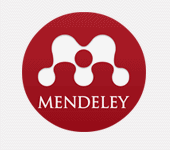PERAN BAHASA DALAM PROMOSI KESEHATAN MENTAL: ANALISIS PSIKOLINGUISTIK PADA KAMPANYE DIGITAL
Abstract
Keywords
Full Text:
PDFReferences
American Psychological Association. (2020). Publication manual of the American Psychological Association (7th ed.). American Psychological Association.
Andrews, G., Bell, C., Boyce, P., Gale, C., Lampe, L., & Marwat, O. (2018). Digital mental health interventions: Review and recommendations. Australian & New Zealand Journal of Psychiatry, 52(6), 594-601.
Beck, A. T., & Clark, D. A. (2020). Cognitive therapy of anxiety disorders. Behavioral Research and Therapy, 53(4), 299-306.
Burnap, P., & Williams, M. L. (2016). Hate speech, social media, and algorithms of detection. Computer in Human Behavior, 59, 428-435.
Corrigan, P. W., & Watson, A. C. (2002). The paradox of self-stigma and mental illness. Clinical Psychology: Science and Practice, 9(1), 35-53.
Digital Mental Health Alliance. (2019). Best practices in mental health promotion through digital platforms. Retrieved from https://www.digitalmentalhealthalliance.org
Escobar-Viera, C. G., Whitfield, D. L., Wessel, C. B., Shensa, A., Sidani, J. E., Brown, A. L., & Primack, B. A. (2018). Social media and mental health: A review. Current Psychiatry Reports, 20(11), 1-9.
Hoffmann, T. C., Glasziou, P. P., Boutron, I., Milne, R., Perera, R., Moher, D., & Barbour, V. (2018). Improving the translation of research evidence into practice. PLoS Medicine, 15(3), e1002586.
Jorm, A. F., & Kitchener, B. A. (2008). Mental health first aid: An update on research and practice. World Psychiatry, 7(1), 22-28.
Kemp, S. (2022). Digital 2022: Global overview report. We Are Social. Retrieved from https://datareportal.com/reports
Lavoie, J., & Macdonald, D. J. (2020). Social media as a tool for mental health promotion. Journal of Technology in Human Services, 38(1), 44-55.
Luxton, D. D., McCann, R. A., Bush, N. E., Mishkind, M. C., & Reger, G. M. (2011). mHealth for mental health. Telemedicine and e-Health, 17(3), 228-234.
McGorry, P., & Tanti, C. (2020). Youth mental health and emerging digital interventions. The Lancet Digital Health, 2(4), e194-e204.
Naslund, J. A., Aschbrenner, K. A., Marsch, L. A., & Bartels, S. J. (2016). The future of mental health care: Digital technology. World Psychiatry, 15(3), 286-295.
Nguyen, T. M., & Pacheco, E. (2019). Linguistic analysis of mental health awareness campaigns. Discourse & Society, 30(6), 664-681.
Pew Research Center. (2021). Social media usage and its impact on mental health. Retrieved from https://www.pewresearch.org
Rickwood, D., & Thomas, K. (2012). Conceptual framework for mental health promotion. Advances in Mental Health, 10(1), 28-38.
Ritterband, L. M., & Thorndike, F. P. (2019). Internet interventions for mental health. Clinical Psychology Review, 68, 9-21.
Toma, C. L., & Hancock, J. T. (2019). Self-disclosure and mental health outcomes on social media. New Media & Society, 21(7), 1582-1598.
Young, K. S. (2017). Internet addiction and its effect on mental health. American Journal of Psychiatry, 174(4), 300-306.
DOI: http://dx.doi.org/10.30829/jai.v13i2.23394
Refbacks
- There are currently no refbacks.
Copyright (c) 2025 Rudi Purwana

This work is licensed under a Creative Commons Attribution-ShareAlike 4.0 International License.





